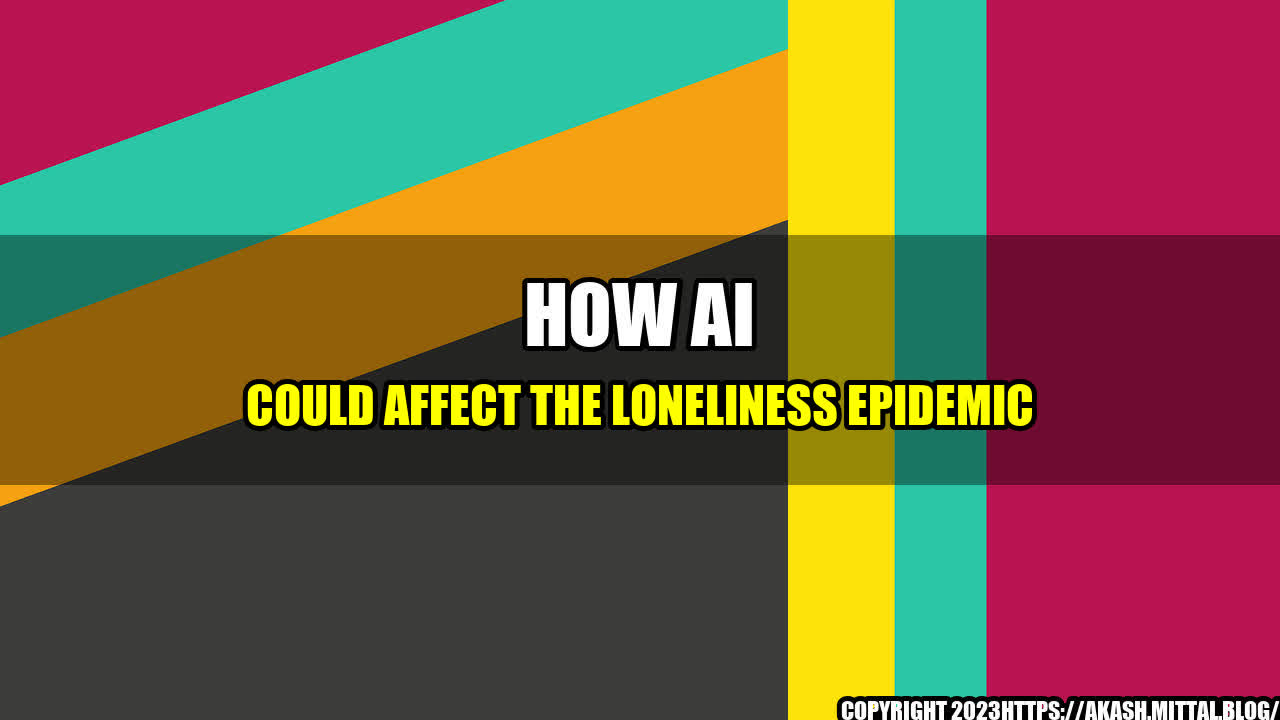A few years ago, when my grandfather passed away, my grandmother was left alone, and her spirits were crushed. She felt lonely and isolated, even though she had family and friends to turn to. Eventually, we found a solution that helped her overcome her loneliness: an AI-powered companion robot.
The robot, named Joy, was designed to interact with seniors and provide comfort and companionship. Joy kept my grandmother company, listened to her stories, and even played games with her. The robot helped my grandmother feel less alone, and she was grateful for the companionship that Joy provided.
My grandmother's story is not unique. Millions of people around the world suffer from loneliness, and the COVID-19 pandemic has only exacerbated this problem. However, with the rise of AI technology, there is hope that we may be able to tackle this epidemic more effectively.
AI's Impact on Loneliness
There are several ways in which AI is already being used to combat loneliness:
- AI-powered companions: Companies like ElliQ and Ageless Innovation are developing robots that can understand human emotions and provide companionship to seniors. These robots can play games, tell stories, and keep seniors engaged, reducing their feelings of loneliness and isolation.
- AI chatbots: Chatbots like Woebot and Replika are designed to provide emotional support to people who are feeling down or anxious. These chatbots use natural language processing to simulate a conversation with a human, and they can offer advice, encouragement, and even jokes to help people feel less lonely.
- Social media: While social media is often criticized for contributing to feelings of loneliness and isolation, it can also be a powerful tool for connecting people. AI algorithms can identify people who are feeling lonely or struggling with mental health issues, and connect them with support groups, therapists, or other resources that can help them.
The Potential of AI to Combat Loneliness
While the examples above are promising, there is still much work to be done to fully harness the potential of AI in combatting loneliness. Here are three key areas where AI can make a difference:
- Personalization: AI can help personalize the companionship experience for seniors, by learning their preferences, interests, and needs. This can lead to deeper, more meaningful connections, and may be particularly beneficial for seniors who have difficulty forming social bonds.
- Accessibility: AI-powered companions and chatbots can reach people who might otherwise have difficulty accessing mental health services or companionship. This includes people with physical disabilities, those in rural areas, and people who are hesitant to seek help due to stigma or other factors.
- Prevention: By monitoring social media and other online interactions, AI algorithms can identify people who are at risk of loneliness or mental health issues, and intervene before those problems become more severe. This could involve connecting people with resources, or simply offering a word of encouragement or support.
Conclusion
Loneliness is a pervasive problem that affects people of all ages and backgrounds. However, with the help of AI technology, we may be able to make significant progress in combating this epidemic. By developing AI-powered companions and chatbots, personalizing the companionship experience, and leveraging AI to identify and prevent loneliness, we can offer support and comfort to those who need it most.
References:
- Ageless Innovation. "Joy for All Companion Pet Cat." http://www.agelessinnovation.com/j4apet
- ElliQ. "The Active Aging Companion." http://www.elliq.com
- Replika. "Your AI Friend." http://www.replika.ai
- Woebot. "Your Friendly Self-Care Expert." http://www.woebot.io/
Hashtags:
#AI #loneliness #mentalhealth #seniors #healthcare #companionrobots
Category:
Healthcare

Curated by Team Akash.Mittal.Blog
Share on Twitter Share on LinkedIn